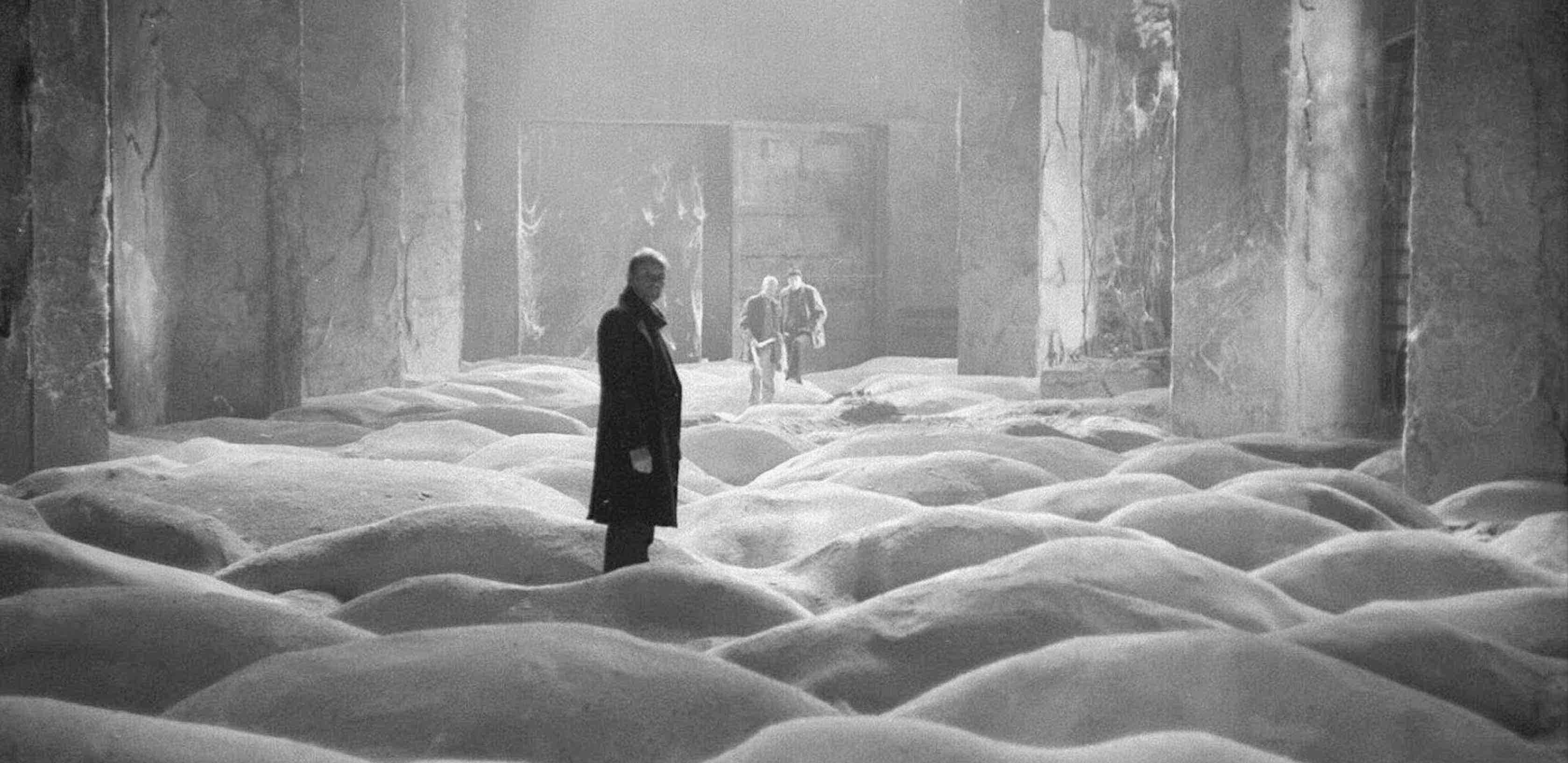
“Stalker” is an enigmatic expedition by Andrei Tarkovsky that delves into the human propensity for meaning and the uncertainties of the unexplored. In a world tainted by a post-apocalyptic landscape, the narrative traces the pathway of three individuals: a Writer, a Professor, and a Stalker. This Stalker is the guide through the enigmatic “Zone”, a locale alleged to fulfill one's deepest desires. The narrative is not merely a geographical journey, but a philosophical voyage, with the introspective dialogues of the characters reflecting the audience's own existential reflections.
Tarkovsky's “Stalker”' brilliantly intertwines the fabric of its narrative with profound philosophical contemplation, prompting the audience to question the nature of desire, the significance of existence, and the essence of humanity. As the characters traverse the physical and metaphorical labyrinth of the Zone, their conversations often digress into deep discussions about faith, fear, and the human condition. This intellectual richness propels “Stalker” beyond the realm of cinema, transforming it into an immersive philosophical experience.
The allure of “Stalker” is enriched by Tarkovsky's masterful cinematography, which vividly portrays the surreal beauty of the Zone. Each frame is a meticulously constructed work of art, imbued with symbolic imagery and stunning visuals. The stark contrast between the desolate, industrial landscapes of the outside world and the lush, verdant wilderness of the Zone reflects the underlying dichotomies of despair and hope, reality and desire that pervade the narrative. Tarkovsky's use of prolonged, contemplative shots invites the audience to fully immerse themselves in the atmospheric beauty of the film.
An extraordinary aspect of “Stalker” that compels me is its remarkable ability to allow space and time for introspection. This is not a film to merely watch, but to experience, to live through. Its slow pace and long, contemplative shots, quite contrary to mainstream cinema, might be challenging for some, but this is precisely what makes it a masterpiece. These moments of stillness provide the audience the opportunity to not just follow the characters, but to walk with them, to dwell in their thoughts, and to confront their own deepest fears and desires. The title “Stalker” is aptly chosen, for the film stalks the audience's consciousness, leaving a lasting impact long after the screen fades to black. In conclusion, ”Stalker” is a powerful exploration of the human condition. Its philosophical depth, stunning cinematography, and introspective pace elevate it from being just a film to a transformative journey that challenges our perception of reality and prods us to question the very essence of our existence.